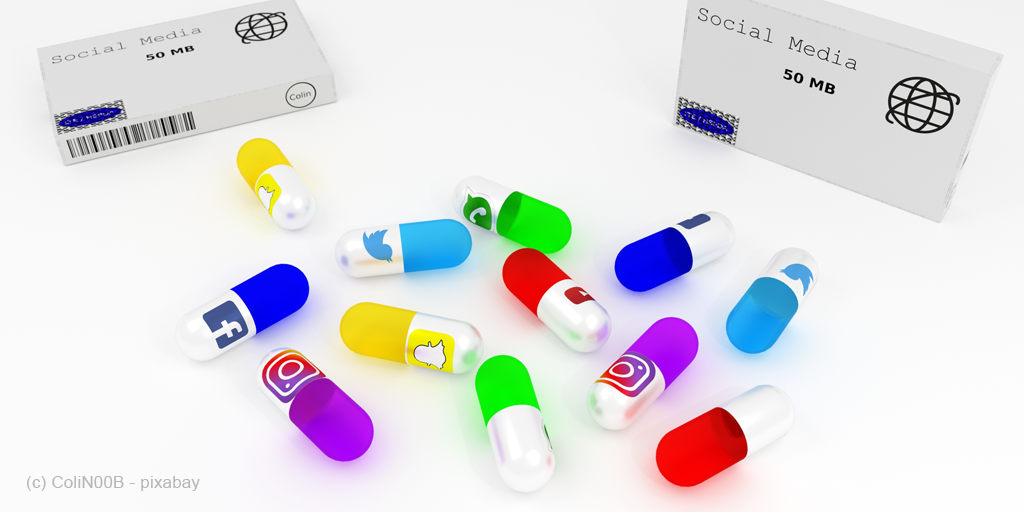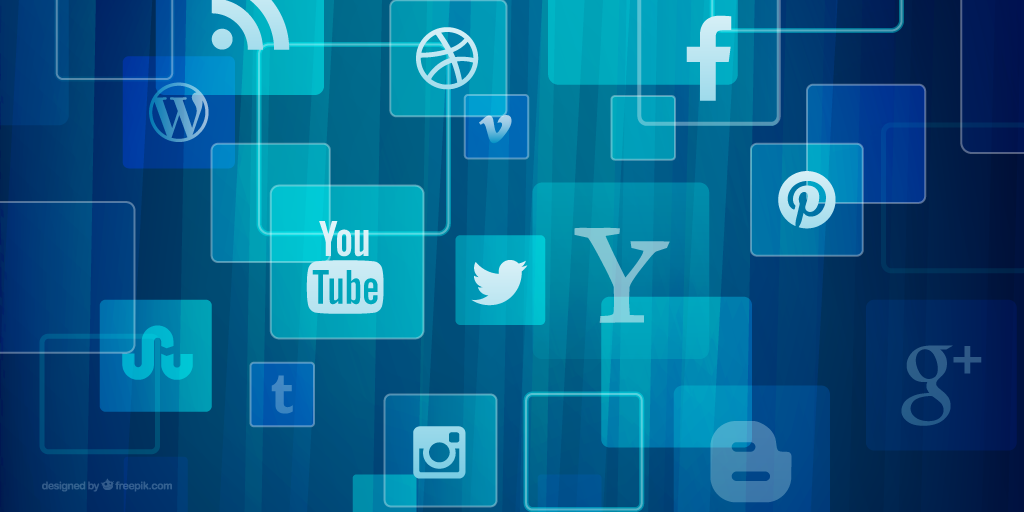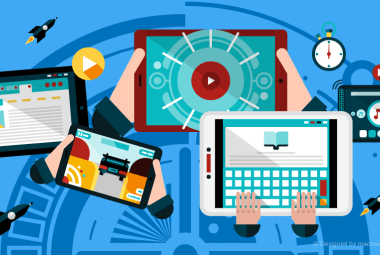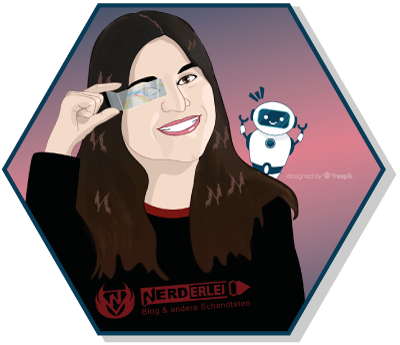This heretical question is devoted to the first post of my new blog series, "What if ..." Imagine a world without social media, where you only have e-mail, SMS, letters, telephone and (you must not forget this in 2018 ...) the personal conversation. For information gathering, only search engines such as Google, RSS feeds from various news sites, Wikipedia and of course the local library or kiosk around the corner would be available. What exactly would you miss? What would be worse? What might even be better?
Ok. So a world without Facebook, Twitter, Instagram, WhatsApp and Co. What could such a world look like alternatively?
- Perhaps Trump would not have become president in the first place in this fictional world, but he could in any case no longer easily declare war on another country in a few unthinking words.
- Perhaps there would be less false news in general (fake news), as the platform would simply be missing for it. They could no longer spread so quickly and simply viral.
- Perhaps our children would at least be spared bullying (cyberbullying) on the net.
- Maybe words like "shitstorm" or "flash mobs" wouldn't even exist because they would no longer be needed.
- Perhaps passengers would talk to each other again on public transport rather than just staring at the smartphone.
- Perhaps students could better focus on teaching and working people on their jobs, as a message is not constantly expected on their smartphone or it is constantly buzzing or even titering.
- Perhaps we would be less informed about each other, for example. About various bodily functions, anatomical changes, relationship status, the last night through or party.
- Maybe we would have to get more in direct contact, which could certainly be more tedious for some as they would have to get up from the couch.
- Maybe there would be more "real" friendships again rather than friendship lists. But it will probably be fewer people – so maybe quality rather than quantity.
- Perhaps there would be less hatred of supposed minorities or otherness, since the mass that lacks the group to do so, entices, incites, pulls along, who might think similarly, but not so wholesale and definitive and cruel. Or even people who don't know what to think about this topic and just want to run after the crowd and make their mark and then put a skip on it right away. This group of people, too, could perhaps no longer exist in the form. And if they existed, then they would no longer have the opportunity to approach these supposed minorities so easily to finish them.
How do you imagine such a world? Writes it to me in the comments.
But what does it actually look like? What is the current status quo to social media?

According to a recent survey conducted by Bitkom Research in February this year, 9 out of 10 German Internet users are already dependent on the "drug" social media [1]. One in three German social media users can live a life without Facebook and Co. Already no longer imagine, among 14 to 29-year-olds it is even one in two. Even after the numerous scandals surrounding Facebook, this network is still the undisputed number 1 among German social media users (66%), closely followed by YouTube (51%). The advantages of these networks seem to be clear among respondents: "You know much better what friends, family and colleagues are doing at the moment" (60% of respondents) and are made aware of "opinions on certain topics that you otherwise do not "(67% of respondents). Both good and interesting arguments, but are they invariably positive?
The Glass Friend: Do you really have nothing to hide?
The first argument that "you know much better what friends, family and colleagues are doing today" implies a certain control body that the individual social media user has towards others, in this case friends, family members and work and work respectively. School-/Study Fellow. So one consciously or unconsciously makes one voluntarily become the so-called and much quoted "glass people," but many do not find this bad, because as you know they have nothing to hide. The fact that this can be a consequential fallacy has already had to be experienced by many users of social media in their own bodies, and by that I mean not only various celebrities who had fallen out of step in tone, taste and decency, but also a number of "ordinary citizens," who due to From unconsidered utterances ruined her own life – or that of others. A short internet search on 22.10.2018 on Google with the search term "fired for tweets" yielded a total of 120,000 search results, of which I had looked at the first 70.
The following headlines caught my eye:
- ' Facebook like for ' Postillon ' article: Police investigate students, ' www.stern.de
- "Teenager is blaspheming on Twitter – and getting fired right away!" www.bild.de
- "Ilmenau Technical University dismisses employee over Twitter remarks," www.tu-ilmenau.de
- "Teacher is fired for correcting students on Twitter," www.bigfm.de
- "A Porsche apprentice posts a xenophobic comment on Facebook-and loses his apprenticeship," www.spiegel.de
- "Racism on Twitter: How a PR executive ruined her career with a tweet," www.tagesspiegel.de
- "A woman loses her internship at NASA because of a tweet," www.jetzt.de
- "Guild Wars 2: Developer plays sexism card on Twitter and gets fired," my mmo.com.au
- "Subnautica: Developer was fired after controversial tweets," www.4players.de
- ' Football pro Guardiola fired for offensive tweets, ' www.haz.de
- "CNN host fired after ' Sieg Heil ' tweet," www.nordbayern.de
I also found interesting overarching articles on the subject:
- "Jon Ronson examines Shitstorms: How a tweet can destroy life," rp-online.de
- "Facebook, Twitter & Co.: Companies are increasingly watching what employees – post and terminate them," blog.wiwo.de
- "Unparalleled termination because of Facebook post?" www.advopedia.de
- "Labour law: The warning is just a tweet away," www.spiegel.de
This list could still have gone on indefinitely, but I think these few enumerations are likely to be clear enough. So, how was that again with "I have nothing to hide"? All right, I focused only on professional life in this search. If you lose your job, it doesn't have to mean that the whole life is ruined, or does it? Anyone who has already been fired or was unsuccessfully job-seeking for a long time could see it differently. Moreover, it could be difficult for some to find employment again after such a scandal, since future potential employers also have access to the Internet. And the internet doesn't forget anything. Nor does it forgive anything. Also, there are no statute of limitations here, because if a rumor is set into the world, it can be as wrong as it wants, it always sticks in some form.
Opinion formation: Can you still find your way around the jungle of "fake news"?
The second argument that "one is made aware of opinions on certain issues that you would not otherwise have perceived" implies that one could be influenced or even manipulated by the opinions of others – in both good and certainly bad sense. This is due to the fact that, according to another survey by Bitkom Research in July this year, one in two German social media users can no longer distinguish advertising from normal content [2]. According to a 2016 Stanford University survey that surveyed 7,804 students from middle school to college [3], it was even more tragic. The survey found that 82% of respondents could not distinguish between a post (advertising) awarded as "sponsored content" and a real news story. Isn't that sad? Then, when "fake news" is added, how is an inexperienced social media user supposed to be able to protect himself from manipulation?
According to klicksafe.de, jugendschutz.net, the Centre of Excellence for the Protection of Youth on the Internet, reported a total of 612 postings and 540 comments on 6 manipulating news sites in 2016 [4]. 80% of the postings are said to have been quotes from reputable media, all of which were taken out of context and used for racist propaganda. Among the comments, 36 inciting statements or calls for violence stood out and the basic tone of the comments was seemingly "marked by raw language."
Tips on how to recognize "fake news" are the article by klicksafe.de, which I highly recommend. Take a look.
So, you see, the arguments supposedly considered an advantage, I was able to turn into negative in the blink of an eye through short research and studies. And I assure you there were no fake news here, unfortunately. I'd be more comfortable if all this was just made up. But it's reality, unfortunately. And worse, it's just a small part of that reality.
But, everything always has two sides – nothing is just positive or just negative. Nor does social media. The basic idea behind connecting with all people around the world, being equal, no matter what your skin colour, culture or religion belongs to, making friends with people on the other end of the world who you don't get to know without these channels Would have, is already a great thing. I can't deny that either or talk small. That really has made the world move closer together. But unfortunately, people still remain just human beings. And the best theoretical model or the noblest thought always somehow becomes a kind of weapon in human hands. And if only it's that the group forces the individual into something they don't actually need or want.
Would, for example, Blogs, such as how I run a one, or companies completely remove themselves from social media, would be invisible these days, would have little customer loyalty, and would face constant criticism that they would not be up-to-date or outdated, and so would not be against the There are competitors that appear to be more modern and "hipper" by using these channels. For example, if you want to travel to the United States. In order to holiday or even apply for a visa to work there, it is currently at least advantageous to have active social media accounts that can be disclosed in the application form [5]. Because if you don't have one, you're probably at least as suspicious as using those accounts to organize or plan terrorist attacks or amok runs in the US.
My conclusion
Since there will continue to be this peer pressure, it will neither subside nor fade, it will continue to be social media in this or more modern form (e.g. In virtual realities). So all of us, including me, have no choice but to tweet and post. But we can do it wisely. Questioning messages, researching them, checking them for plausibility. We can think before sending a message to the world ourselves, what impact it could have and whether we can really stand by the statement that has been made – even years later. If we are angry because of something or someone, even if it may be so difficult to stop, take a breath and consider whether we really want to publish something now that can no longer be withdrawn. You don't always have to turn on everything and everyone verbally when you're after it. There used to be something like decency and mutual respect. That should still be possible today, including on social media. And even against general opinion, it's not uncool to be respectful of those around him. Because there are also sentient and vulnerable people behind the anonymous usernames – just like yourself. Don't forget this and behave.
Even children and adolescents could do the same. Because they, too, should already be able to distinguish between right and wrong if they had noticed it from the parents ' home.
In my opinion, the dog is buried. Parents and the school would have to know much better about the dangers and risks of social media, especially for children, and educate the kids about it at an early stage, so that they can't fall into one of the numerous traps. Children are still too unmoved, too naïve to escape or question a skillful manipulation. Nor can they unquestionably distinguish reality from fantasy or fiction. With the potential dangers, paedophilia could just be one of the big and terrible problems. Other are the worsening cyberbullying, the rampant shitstorm or various communities that, for example, Incitement bulimia, suicide or self-mutilation.
Perhaps social media should just be approved for full-year-olds. Because the dangers known today could be out of date again and tomorrow completely new dangers sprout out of the ground, which even adults cannot estimate or foresee. And honestly, why does a child need a Facebook account?
Sources used
- "Social media trends 2018," Bitkom Research, 27.02.2018, 1,212 Internet users and 1,011 social media users aged 14 and over in Germany: https://www.bitkom.org/Presse/Anhaenge-an-PIs/2018/180227-Bitkom-PK-Charts-Social-Media-Trends-2.pdf
- Study report "Social Media & Social Messaging" by Bitkom Research, 16.07.2018 https://www.bitkom.org/Presse/Presseinformation/Jeder-zweite-Social-Media-Nutzer-kann-Werbung-von-Inhalt-nur-schwer-unterscheiden.html
- https://www.wsj.com/articles/most-students-dont-know-when-news-is-fake-stanford-study-finds-1479752576
- https://www.klicksafe.de/themen/problematische-inhalte/fake-news/
- https://www.stern.de/reise/fernreisen/usa-reisen--strenge-kontrollen wow-trump-usa-urlow-grey-7348368.html
Image sources:
- Contribution picture: Designed by Freepik



 Roboter: © Designed by freepik.com
Roboter: © Designed by freepik.com